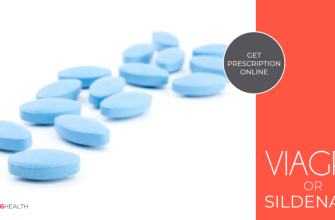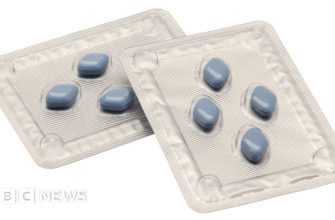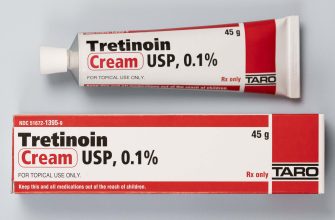For many, 25 mg of Viagra can be just enough to restore confidence and achieve satisfying results. This starting dose often proves ideal because it balances efficacy with minimizing potential side effects. Think of it as finding the sweet spot – potent enough to work, but gentle on your system.
But how do you know if 25 mg is your magic number? Several factors influence individual response. Metabolism, age, overall health, and the severity of your erectile dysfunction all play a role. If you’re generally sensitive to medications or have certain underlying conditions, starting low is definitely the smartest approach.
Consider your past experiences. Have you tried higher doses before and experienced unpleasant side effects? Or perhaps you’ve never used Viagra at all? A cautious initial approach with 25 mg allows you to gauge your body’s reaction. You can then discuss with your doctor if a slight adjustment is needed to fine-tune your dosage for optimal results.
- Viagra 25mg: Is It Enough? A Detailed Guide
- Understanding Viagra Dosages
- Factors Influencing Dosage
- What to Expect at Different Dosages
- 25mg Viagra: Who Is It For?
- When 25mg Might Not Be Enough
- Lifestyle Factors and Viagra Dosage
- What to Expect with 25mg Viagra
- Optimizing 25mg Viagra Effectiveness
- When to Consider a Higher Dose
Viagra 25mg: Is It Enough? A Detailed Guide
For many men, a 25mg dose of Viagra *is* sufficient to achieve a satisfactory erection. Doctors often prescribe it as a starting point to gauge individual response and minimize potential side effects.
Consider 25mg enough if you experience noticeable improvement in erectile function without significant side effects like headaches or flushing. Track your experiences each time you use the medication; note the strength of your erection, duration, and any side effects. Share these details with your doctor to help them determine the optimal dosage for you.
Factors influencing whether 25mg is adequate include your age, overall health, the severity of your erectile dysfunction, and other medications you take. A younger, healthier individual might find 25mg sufficient, whereas someone with underlying health conditions might require a higher dose.
If 25mg doesn’t produce the desired results, *do not* increase the dosage yourself. Consult your doctor. They might recommend increasing the dosage to 50mg or 100mg, or exploring alternative treatments. A gradual, medically supervised approach is safest.
Lifestyle changes can also impact Viagra’s needed dosage. Maintaining a healthy weight, exercising regularly, quitting smoking, and managing stress levels can improve erectile function and potentially allow you to use a lower dose of Viagra.
Remember to take Viagra as prescribed by your doctor. Generally, you should take it about one hour before sexual activity. Avoid consuming large meals, especially those high in fat, as this can delay the medication’s absorption and reduce its effectiveness.
Be aware of potential side effects. Common side effects include headache, flushing, nasal congestion, and vision changes. If you experience severe side effects, such as sudden vision or hearing loss, seek immediate medical attention.
Communicate openly with your doctor about your experiences with Viagra. They can provide personalized advice and adjust your treatment plan as needed to ensure you achieve the best possible results with the lowest possible dose.
Understanding Viagra Dosages
Viagra’s 25 mg dose may be sufficient for some men. Doctors often prescribe it as a starting point, particularly if you are older, have certain health conditions, or are taking medications that might interact with sildenafil (the active ingredient in Viagra). You should experience an erection sufficient for satisfactory sexual activity within 30-60 minutes of taking the tablet.
Factors Influencing Dosage
Several factors determine the ideal Viagra dosage. Your age plays a role, as older men may process the drug more slowly. Pre-existing health conditions, such as kidney or liver problems, can also impact how your body responds to the medication. Certain medications, especially alpha-blockers used for prostate issues or high blood pressure, may necessitate a lower starting dose to avoid adverse reactions. Consider discussing your complete medical history with your doctor to personalize your dosage.
If 25 mg proves ineffective, your doctor might suggest increasing the dosage to 50 mg or even 100 mg. Never adjust your dosage yourself. Communicate openly with your physician about the effects you experience. They can monitor your response and make necessary adjustments to maximize benefits while minimizing potential side effects. A higher dose doesn’t guarantee better results; it merely increases the risk of experiencing adverse effects like headaches, flushing, or nasal congestion. Conversely, if 25 mg is too strong, causing unwanted side effects, discuss lowering the dose further. The goal is to find the lowest effective dose that works best for you.
What to Expect at Different Dosages
At 25 mg, expect a milder effect. If you respond well, you might not need a higher dose. The 50 mg dosage typically provides a stronger effect for those who find 25 mg insufficient. The maximum dose, 100 mg, is reserved for men who do not respond to lower doses and have tolerated the medication well. Remember that a higher dose increases the probability of experiencing side effects, and it should only be considered under medical supervision. Always follow your doctor’s instructions and report any unusual symptoms.
25mg Viagra: Who Is It For?
Consider 25mg Viagra as a suitable starting dose if you’re new to erectile dysfunction (ED) medication or you experience mild ED. It often works well if you have underlying health conditions that might make a higher dose problematic, like high blood pressure or heart issues. This lower dose minimizes the risk of side effects while still providing a therapeutic benefit. It can also be a good option if you’re sensitive to medications generally.
Men over 65 often find 25mg effective because their bodies process medications differently. Doctors frequently recommend starting with this dosage for older adults to minimize any potential adverse reactions. Keep in mind, 25mg might also be appropriate if you’re taking other medications that could interact with sildenafil (Viagra’s active ingredient). Certain drugs increase the concentration of sildenafil in your bloodstream, making a lower dose prudent.
When 25mg Might Not Be Enough
The 25mg dose might not provide sufficient results for everyone. If you find that it doesn’t produce a strong enough erection for satisfactory sexual activity, or if the effects wear off too quickly, you might need a higher dose. This is particularly likely if your ED is more severe or has a clear underlying cause, such as nerve damage or a hormonal imbalance. Always consult your doctor before increasing your dosage.
If you’ve taken 25mg a few times and it consistently yields only partial or short-lived results, discuss this with your doctor. They can assess whether a higher dose (50mg or 100mg) is safe and appropriate for you, or if another ED treatment option would be more suitable. Never increase the dose yourself without medical advice.
Lifestyle Factors and Viagra Dosage
Keep in mind that lifestyle factors can affect how well Viagra works. Factors like diet (particularly high-fat meals), alcohol consumption, and stress levels can all impact its effectiveness. For example, avoid consuming heavy, fatty foods before taking Viagra, as this can delay absorption and reduce its potency. Also, try to minimize alcohol intake, as it can exacerbate side effects and impair erectile function.
What to Expect with 25mg Viagra
Expect a noticeable improvement in your ability to achieve and maintain an erection, generally within 30-60 minutes of taking the pill. This dosage often works well for those new to Viagra or those who experience mild erectile dysfunction. The effect typically lasts for 3-5 hours, giving you a window of opportunity for sexual activity.
You might experience some common side effects, though they’re often milder with the 25mg dose. These include:
- Headache (most common)
- Facial flushing (redness)
- Nasal congestion
- Mild visual changes (blurry vision, sensitivity to light)
Keep in mind that Viagra needs sexual stimulation to work. Taking the pill alone won’t automatically cause an erection. It enhances your body’s response to arousal.
To maximize the benefit and minimize risks:
- Take Viagra on an empty stomach, if possible. Food, especially fatty meals, can slow down absorption.
- Avoid excessive alcohol consumption. Alcohol can worsen side effects and reduce Viagra’s action.
- Discuss any other medications you’re taking with your doctor, as interactions are possible. Certain medications, like nitrates, are dangerous to combine with Viagra.
If you don’t see sufficient improvement with 25mg, talk to your doctor. They might suggest increasing the dosage to 50mg. However, don’t increase the dose yourself; always follow medical advice.
If you experience bothersome side effects, don’t hesitate to consult your healthcare provider. They can assess whether the 25mg dose is appropriate for you or recommend alternative treatments.
Optimizing 25mg Viagra Effectiveness
Enhance the 25mg Viagra experience by taking it on an empty stomach; food, especially high-fat meals, can slow down absorption and delay its effects. Allow a full hour for the medication to take effect before engaging in sexual activity.
Minimize alcohol consumption. Alcohol can exacerbate erectile dysfunction (ED) and counteract Viagra’s benefits, potentially increasing side effects like headaches and dizziness. Limit intake to one or two drinks, or ideally, avoid alcohol altogether.
Stimulation is key. Viagra only facilitates an erection when you are already sexually aroused. Foreplay and other forms of stimulation are necessary for it to work as intended.
Manage any underlying health conditions. Conditions such as diabetes, high blood pressure, and high cholesterol can contribute to ED. Controlling these conditions through diet, exercise, and medication, if necessary, can improve Viagra’s efficacy.
Consider timing intercourse carefully. While Viagra’s effects typically last around four hours, the peak concentration in your bloodstream occurs approximately one hour after ingestion. Plan accordingly.
Evaluate potential drug interactions. Certain medications, such as nitrates and alpha-blockers, can interact negatively with Viagra, leading to dangerous drops in blood pressure. Discuss all medications and supplements you are taking with your doctor.
Proper hydration is often overlooked. Drinking plenty of water can aid circulation and potentially enhance Viagra’s absorption and effectiveness. Ensure you are adequately hydrated throughout the day.
If the 25mg dose consistently proves inadequate despite these optimizations, consult your physician about the possibility of increasing the dosage, after thorough evaluation. Never self-increase the dosage without medical advice.
| Optimization Strategy | Expected Outcome |
|---|---|
| Empty Stomach Intake | Faster absorption, quicker onset of action |
| Limited Alcohol | Reduced side effects, improved erection quality |
| Sexual Stimulation | Enables the drug to work |
| Health Management | Better overall vascular health, improved Viagra response |
| Strategic Timing | Maximize medication’s concentration during intercourse |
| Drug Interaction Review | Avoid dangerous side effects |
| Proper Hydration | Aids circulation, better drug absorption |
When to Consider a Higher Dose
If Viagra 25 mg doesn’t consistently produce satisfactory results, think about discussing a dose increase with your doctor. Many men find 50 mg offers a better response. Assess how often you achieve a firm erection suitable for intercourse, and note any side effects experienced at the lower dose before making any changes.
Consider a higher dose if you’ve taken 25 mg on several occasions, following all instructions (including avoiding large meals and alcohol), yet still experience weak or short-lived erections. The effectiveness of sildenafil, the active ingredient in Viagra, can vary depending on individual factors like metabolism and the severity of erectile dysfunction. Your physician can assess if those factors are limiting the 25 mg dose’s efficacy.
Remember, increasing the dose without medical guidance isn’t recommended. Higher doses can elevate the risk of side effects such as headaches, flushing, nasal congestion, and vision changes. A doctor can evaluate your medical history, current medications, and overall health to determine if a higher dose is safe and appropriate for you. They might also explore alternative treatments if Viagra proves unsuitable.






